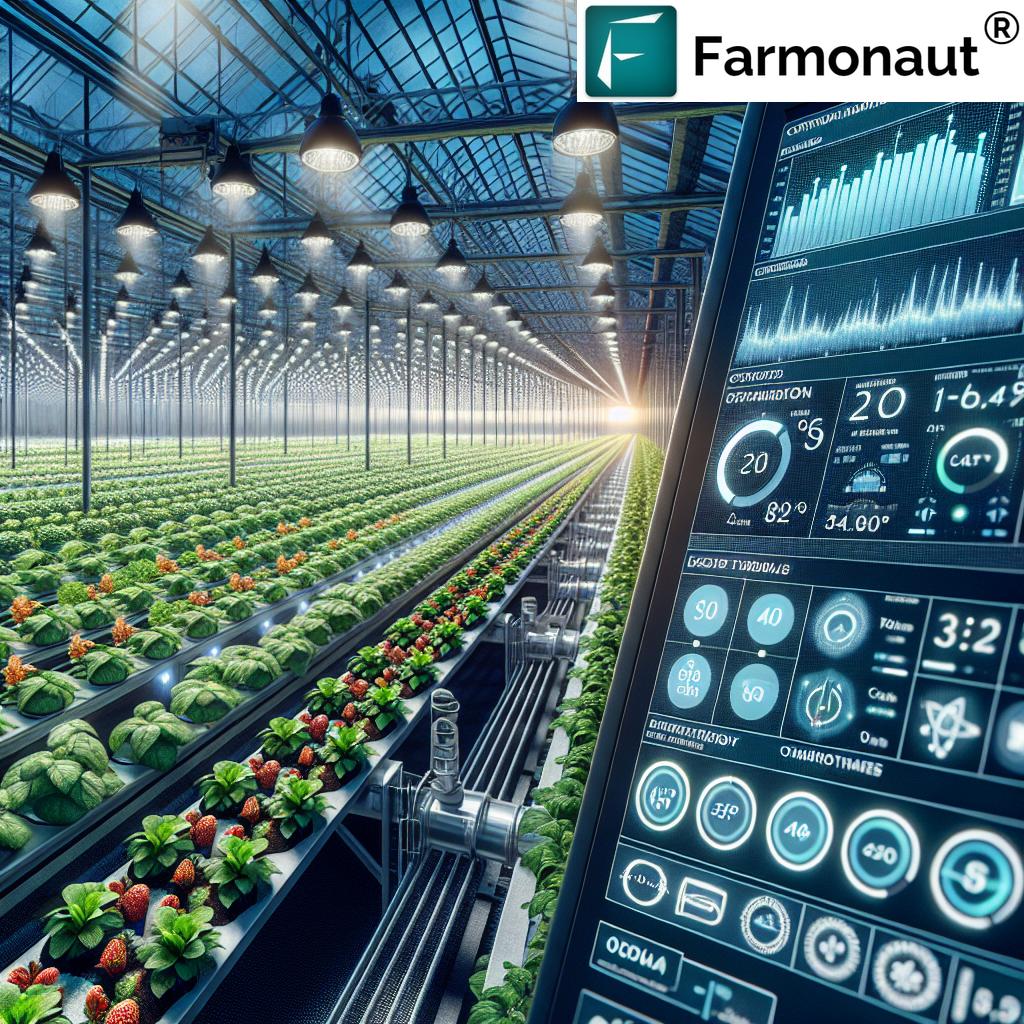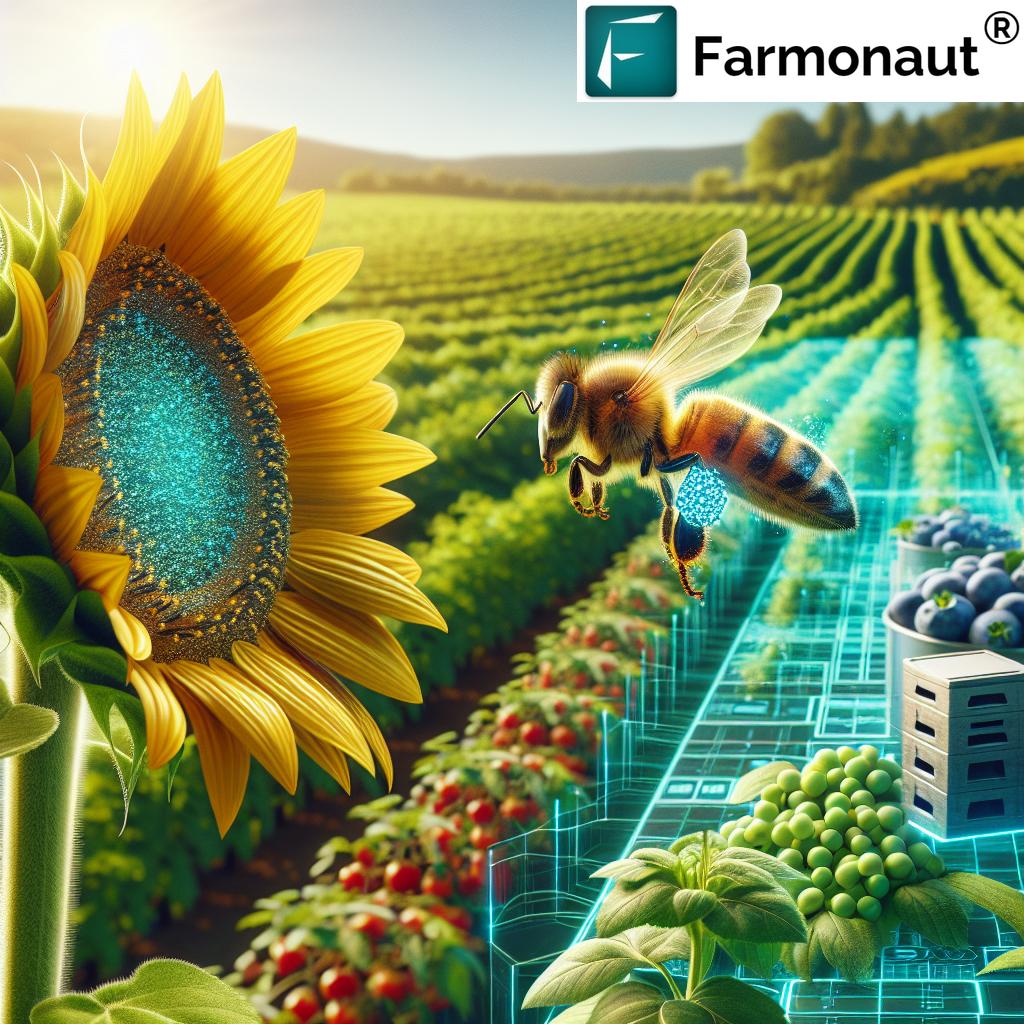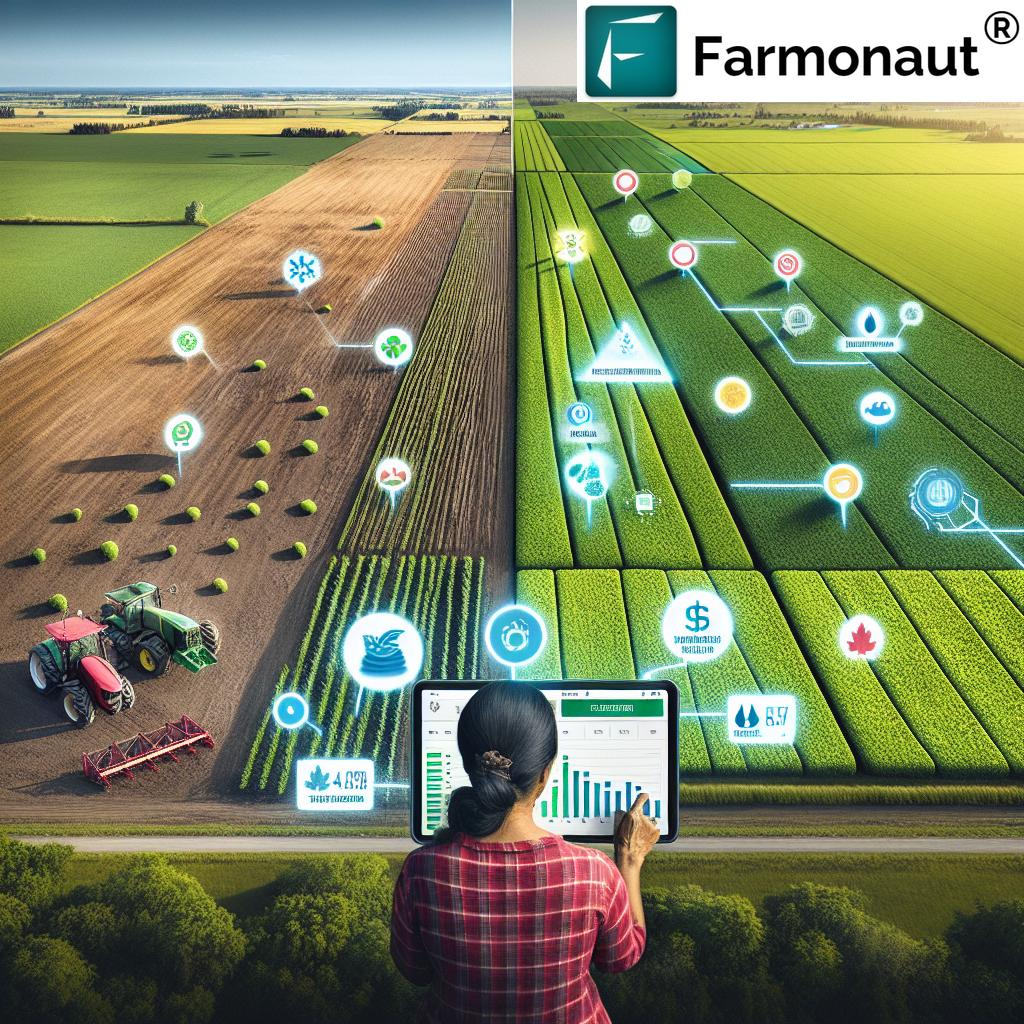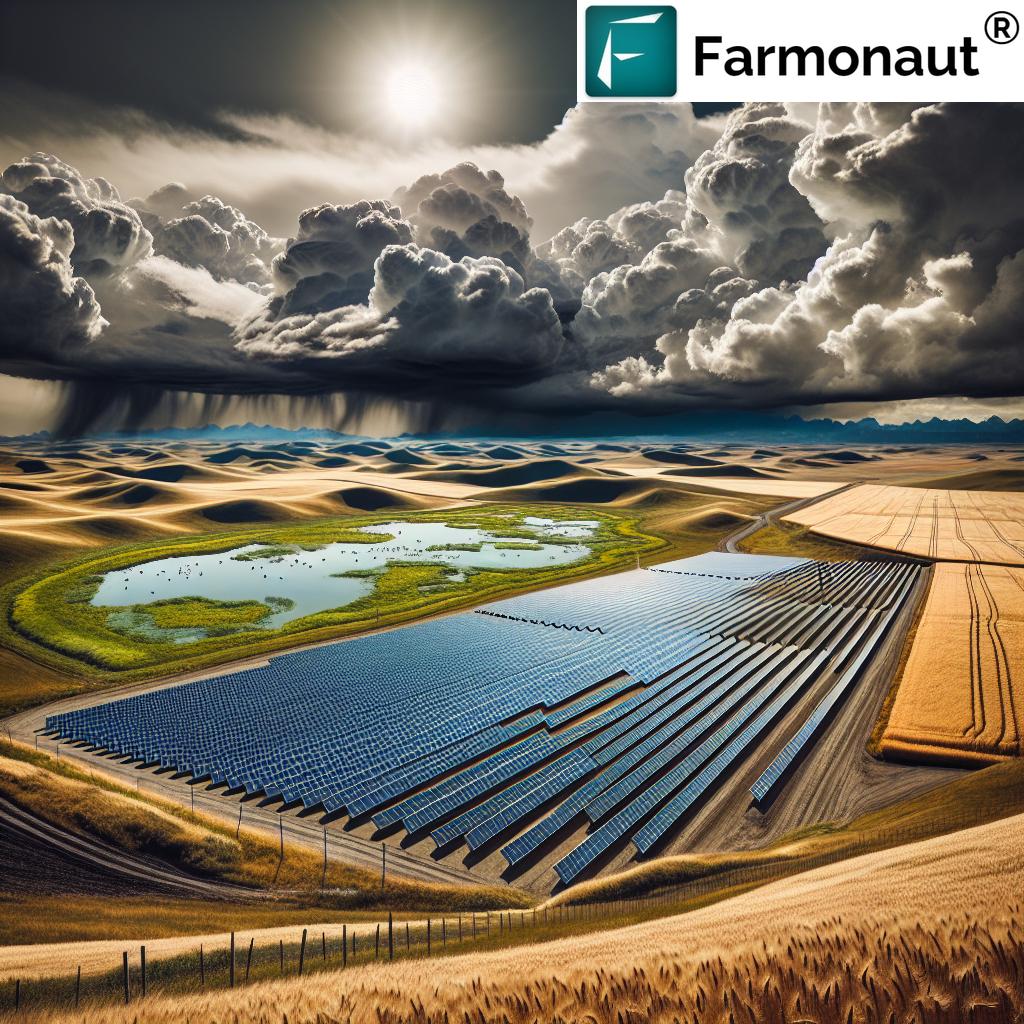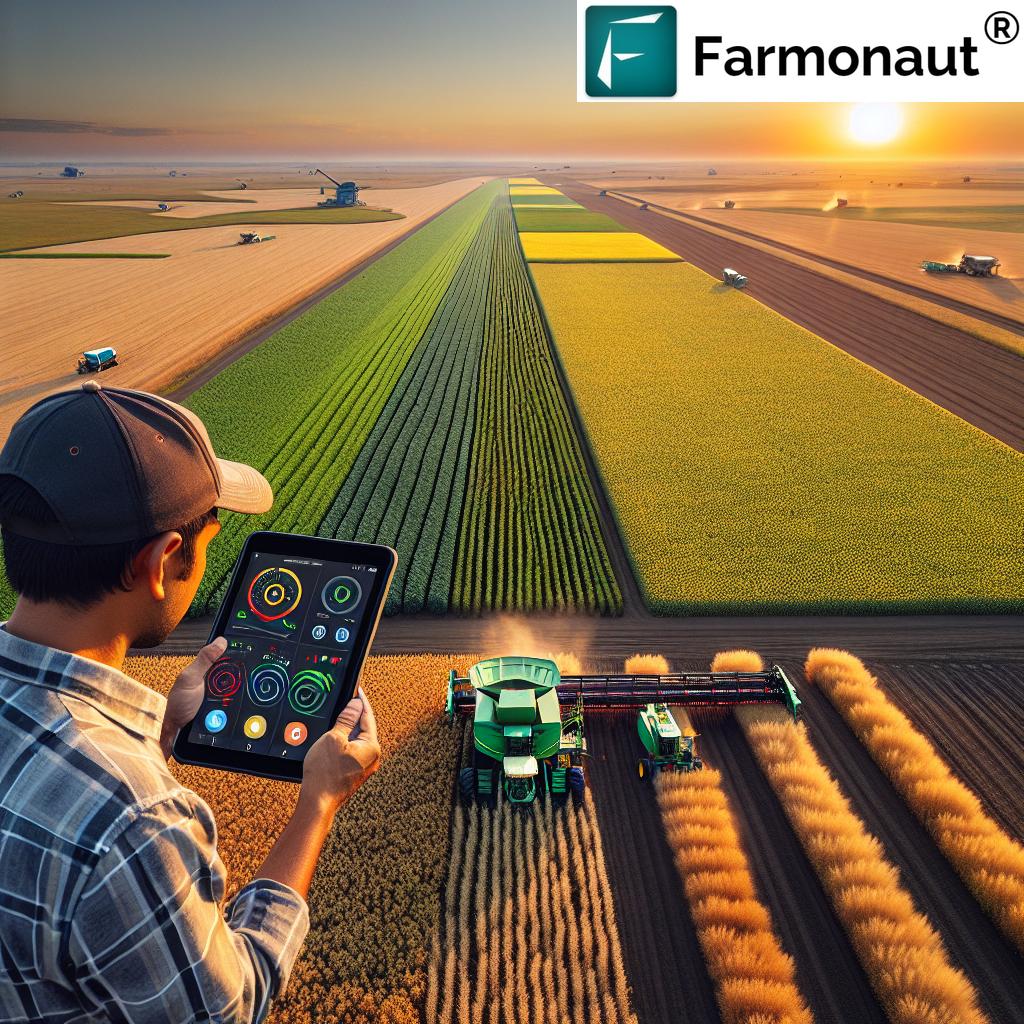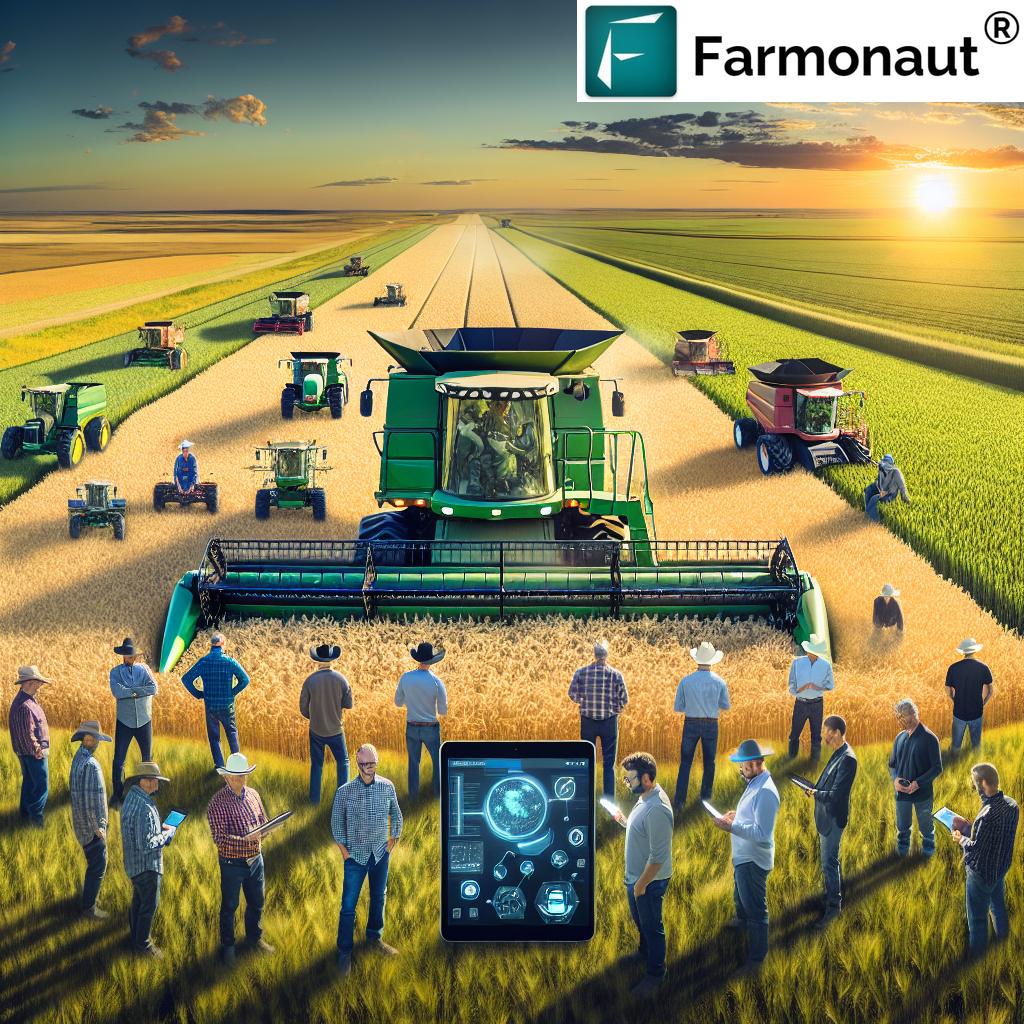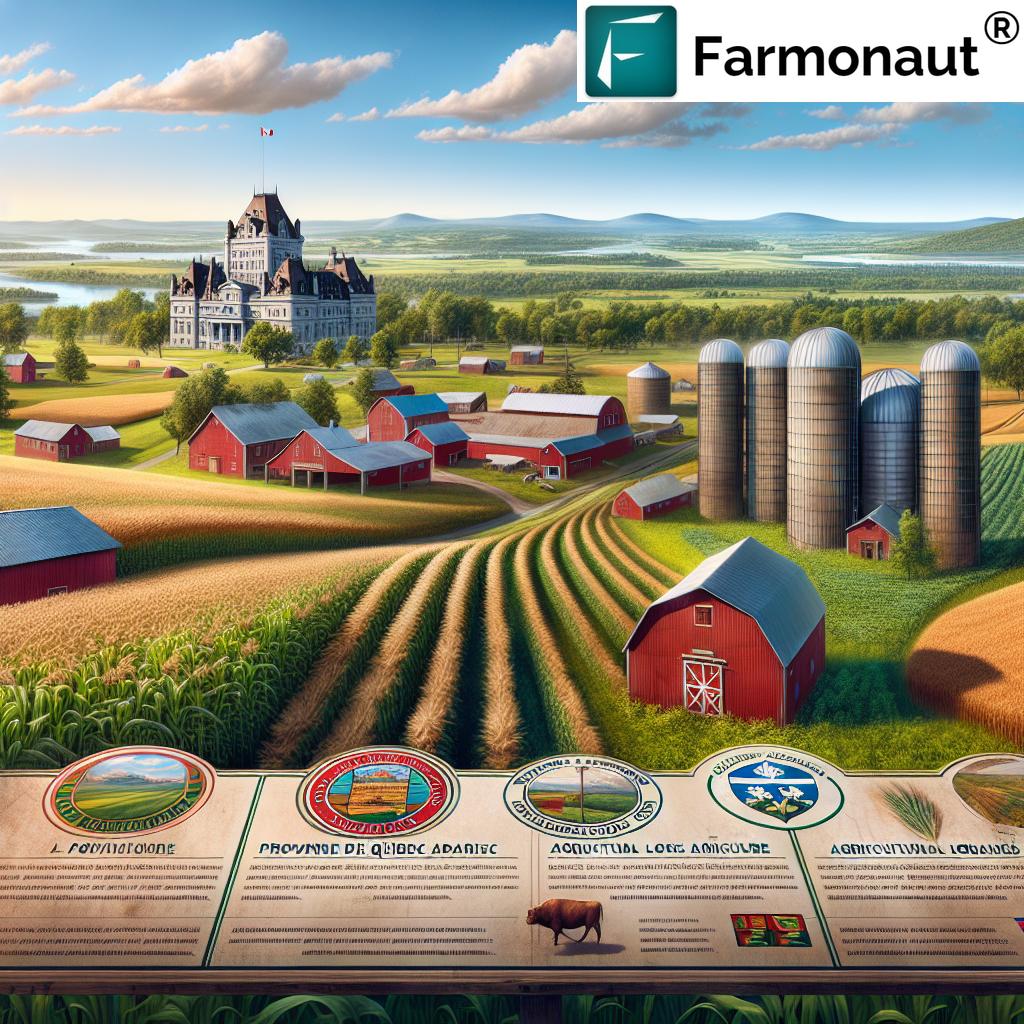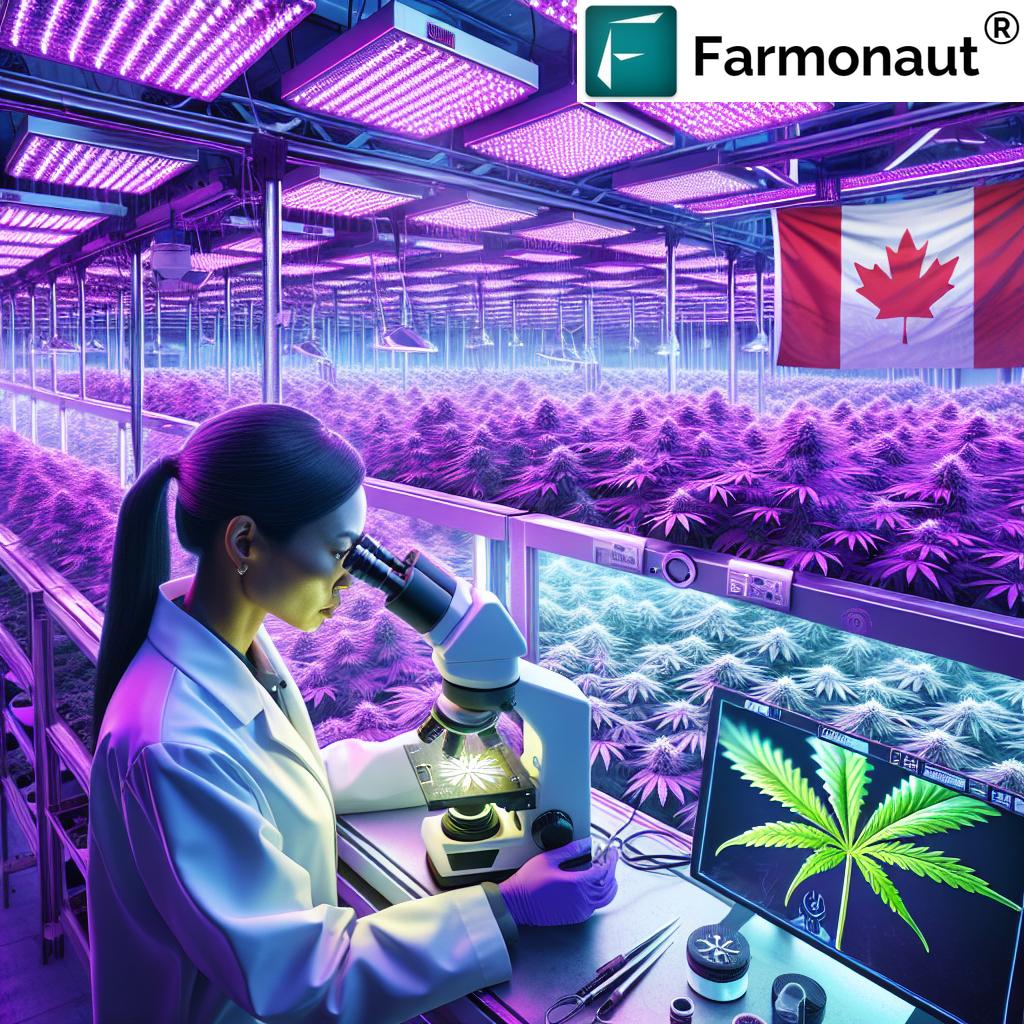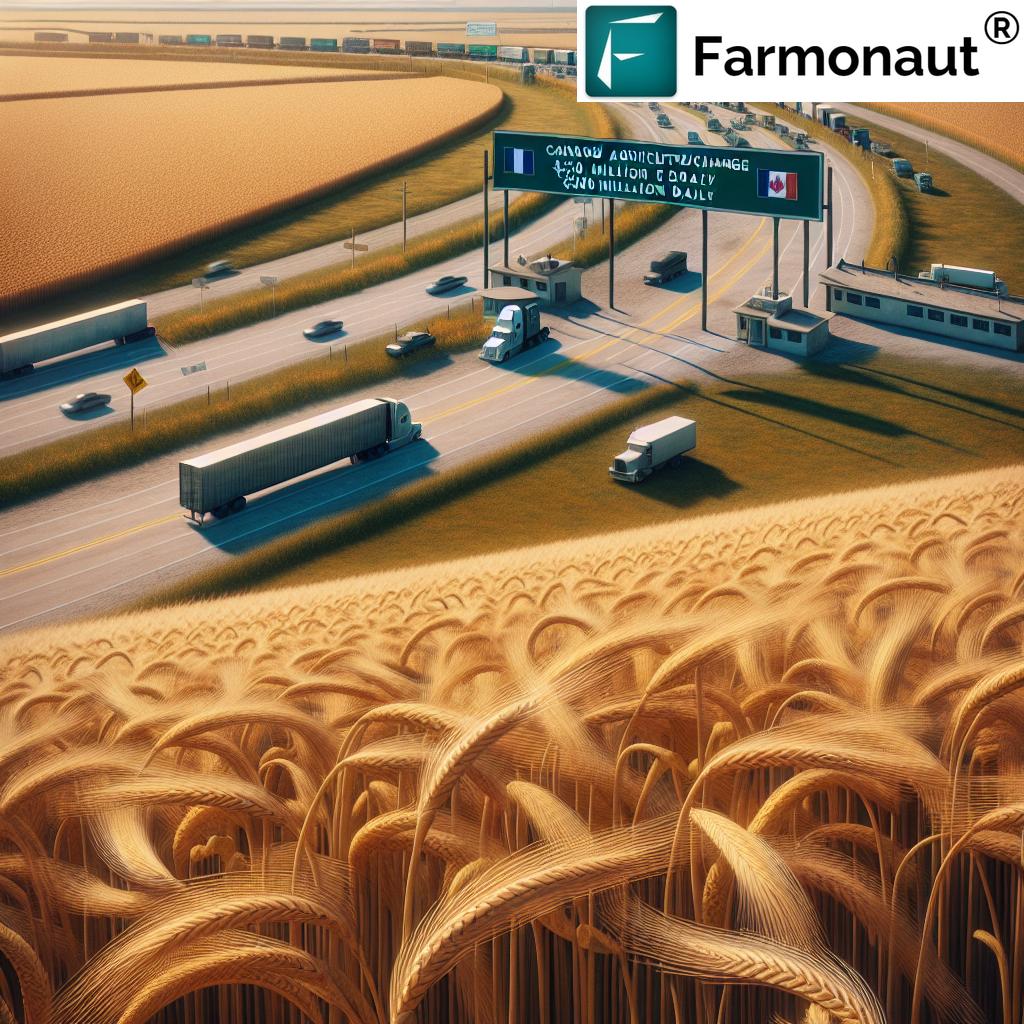Revolutionizing Ontario’s Agriculture: How Farmonaut’s Precision Farming Innovations Drive Sustainable Growth
“Vertical farming systems can produce up to 350 times more crop yield per acre than traditional farming methods.”
Welcome to the future of farming in Ontario, Canada! As we delve into the exciting world of agricultural innovation, we’re thrilled to explore how precision farming technologies are transforming the landscape of our beloved province’s agricultural sector. At the forefront of this revolution is Farmonaut, a pioneering agricultural technology company that’s making waves with its cutting-edge solutions.
In this comprehensive blog post, we’ll explore the evolving face of Ontario’s agriculture, highlighting key trends and technological advancements that are reshaping farm operations. From smart farming techniques to vertical farming systems, we’ll uncover the innovative solutions driving productivity and sustainability in our region.
The Changing Face of Ontario’s Agriculture
Ontario has long been known for its rich agricultural tradition, with sprawling farms dotting the countryside. However, the industry is undergoing a significant transformation, driven by the need for sustainable practices and increased efficiency. Let’s explore some of the key factors influencing this change:
- Climate change challenges: Unpredictable weather patterns and extreme events are pushing farmers to adopt more resilient practices.
- Resource scarcity: The need to conserve water and reduce chemical inputs is driving the adoption of precision farming techniques.
- Consumer demand for sustainability: Ontario’s consumers are increasingly seeking locally grown, environmentally friendly produce.
- Technological advancements: The rise of IoT, AI, and satellite technology is opening up new possibilities for farm management.
In this evolving landscape, Farmonaut’s innovative solutions are playing a crucial role in helping Ontario’s farmers adapt and thrive.
Farmonaut: Pioneering Precision Farming in Ontario
Farmonaut is at the forefront of the agricultural revolution, offering a comprehensive suite of tools that combine satellite technology, AI, and blockchain to meet the diverse needs of modern agriculture. Let’s explore how Farmonaut’s solutions are transforming farming practices in Ontario:
1. Satellite-Based Crop Health Monitoring
One of Farmonaut’s key offerings is its advanced satellite-based crop health monitoring system. This technology provides Ontario farmers with real-time insights into their fields’ conditions, including:
- Vegetation health (NDVI)
- Soil moisture levels
- Crop stress detection
- Growth stage analysis
By leveraging this data, farmers can make informed decisions about irrigation, fertilizer usage, and pest management, ultimately optimizing crop yields and reducing resource wastage.
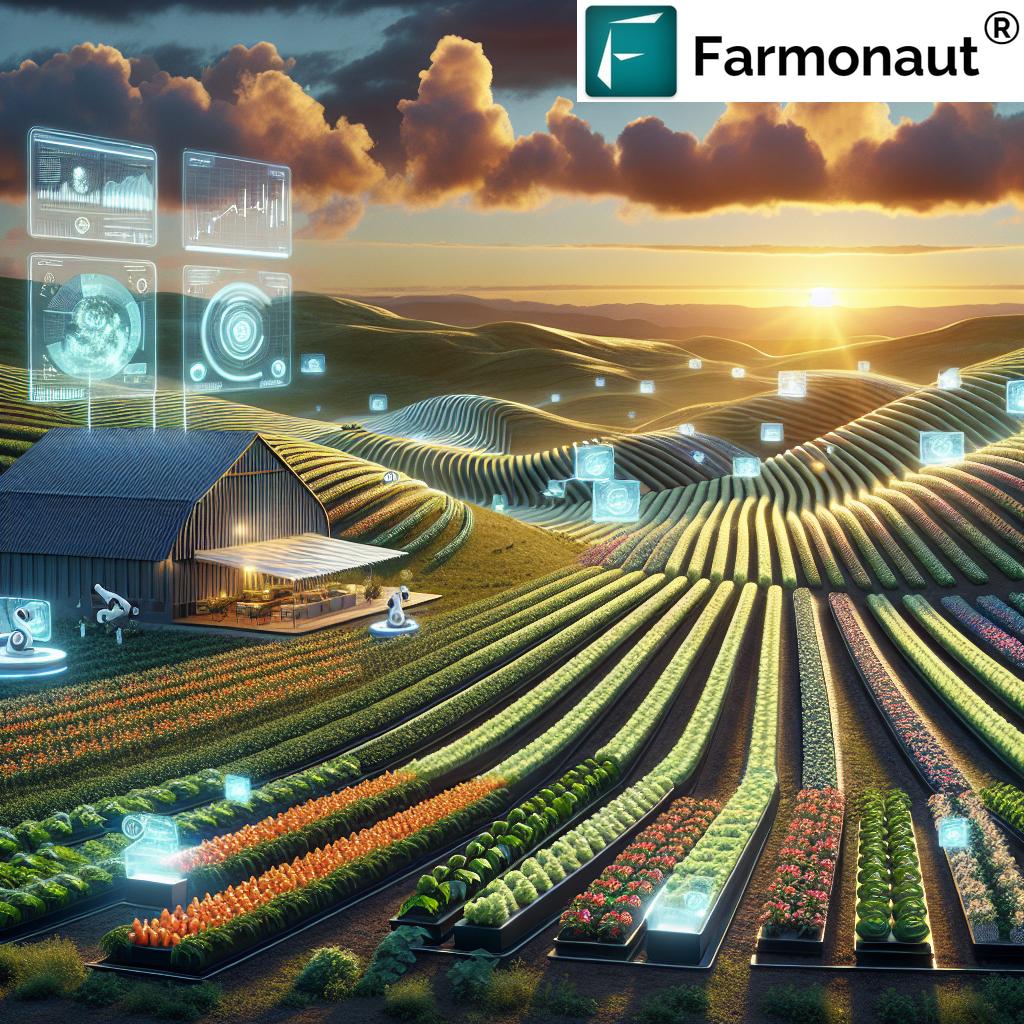
2. Jeevn AI Advisory System
Farmonaut’s Jeevn AI is a game-changer for Ontario’s farmers. This AI-driven personalized farm advisory tool delivers:
- Real-time insights
- Accurate weather forecasts
- Expert crop management strategies
By analyzing satellite data and other inputs, Jeevn AI generates customized advice that helps farmers improve productivity and efficiency. This technology is particularly valuable in Ontario’s diverse agricultural landscape, where conditions can vary significantly from one region to another.
3. Blockchain-Based Product Traceability
In an era where consumers are increasingly conscious about the origin and journey of their food, Farmonaut’s blockchain-based traceability solution is revolutionizing Ontario’s agricultural supply chains. This technology ensures:
- Transparency from farm to table
- Enhanced food safety
- Reduced fraud in supply chains
- Improved consumer trust
For Ontario’s farmers and agribusinesses, this means the ability to showcase the quality and sustainability of their products, potentially commanding premium prices in the market.
4. Fleet and Resource Management
Efficient management of agricultural machinery and resources is crucial for Ontario’s large-scale farming operations. Farmonaut’s fleet and resource management tools help:
- Optimize vehicle usage
- Ensure safety in farm operations
- Reduce operational costs
- Improve overall management of agricultural machinery
This level of optimization is particularly valuable in Ontario’s diverse agricultural landscape, where farms can range from small family operations to large industrial-scale enterprises.
5. Carbon Footprinting
As Ontario moves towards more sustainable agricultural practices, monitoring and reducing environmental impact is becoming increasingly important. Farmonaut’s carbon footprint tracking feature provides:
- Real-time data on emissions
- Insights for reducing environmental impact
- Tools for compliance with environmental regulations
This technology is helping Ontario’s agribusinesses take concrete steps towards sustainability, aligning with the province’s environmental goals and consumer expectations.
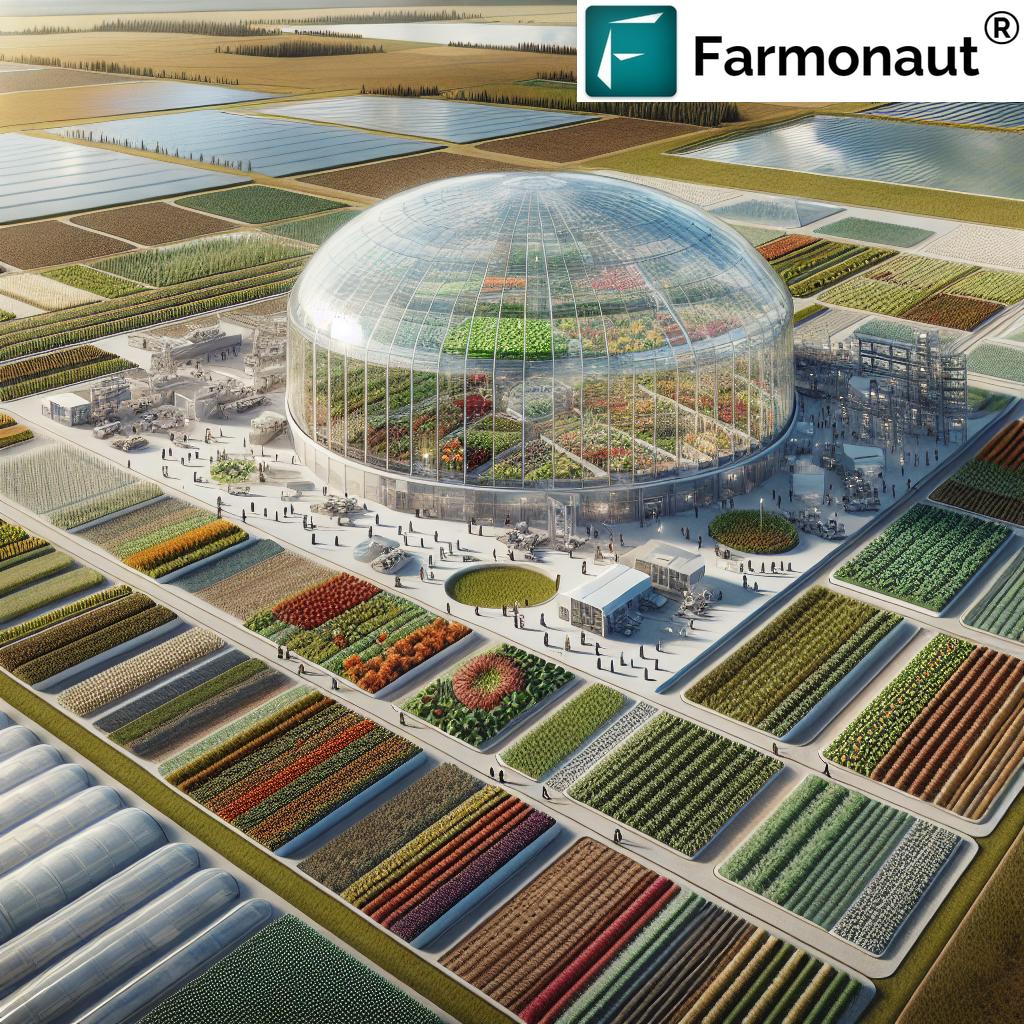
The Impact of Precision Farming on Ontario’s Agriculture
The adoption of precision farming technologies, like those offered by Farmonaut, is having a profound impact on Ontario’s agricultural sector. Let’s explore some of the key benefits:
1. Increased Productivity
By providing real-time data and AI-driven insights, precision farming technologies are helping Ontario’s farmers optimize their operations. This leads to:
- Higher crop yields
- More efficient use of resources
- Reduced crop losses due to pests and diseases
2. Enhanced Sustainability
Precision farming is playing a crucial role in making Ontario’s agriculture more sustainable. Benefits include:
- Reduced water usage through targeted irrigation
- Minimized chemical inputs
- Lower carbon emissions
- Improved soil health
3. Cost Savings
While the initial investment in precision farming technologies may seem significant, the long-term cost savings are substantial. Ontario’s farmers are experiencing:
- Reduced input costs (fertilizers, pesticides, water)
- Lower labor costs
- Improved equipment efficiency and longevity
4. Data-Driven Decision Making
With access to real-time data and AI-powered insights, Ontario’s farmers can make more informed decisions about their operations. This leads to:
- Optimized planting and harvesting schedules
- Better risk management
- Improved long-term planning
Comparison: Traditional Farming vs. Precision Farming in Ontario
| Aspect | Traditional Farming | Precision Farming with Farmonaut |
|---|---|---|
| Crop Monitoring | Manual, time-consuming | Real-time, satellite-based |
| Resource Usage (Water, Fertilizers) | Often excessive, uniform application | Optimized, targeted application |
| Yield Prediction Accuracy | Low to moderate | High, AI-driven predictions |
| Environmental Impact | Higher carbon footprint | Reduced emissions, sustainable practices |
| Labor Requirements | High | Reduced, more efficient |
| Data-Driven Decision Making | Limited, often based on experience | Comprehensive, AI-powered insights |
| Sustainability Practices | Variable, often challenging to implement | Integrated, easier to adopt and monitor |
| Technology Integration | Minimal | Extensive (IoT, AI, Blockchain) |
| Cost Efficiency | Variable, often higher long-term costs | Initial investment, significant long-term savings |
| Carbon Footprint | Higher, difficult to measure | Lower, easily monitored and managed |
“AI-powered precision agriculture can reduce water usage by up to 30% while increasing crop yields by 25%.”
The Future of Farming in Ontario
As we look to the future, it’s clear that precision farming technologies will play an increasingly important role in Ontario’s agricultural sector. Here are some key trends and developments we can expect to see:
1. Increased Adoption of AI and Machine Learning
As AI technologies continue to advance, we can expect to see even more sophisticated farm management systems. These will offer:
- More accurate predictions of crop yields and market demand
- Automated pest and disease detection
- Highly personalized crop management recommendations
2. Integration of IoT Devices
The Internet of Things (IoT) is set to revolutionize farm operations in Ontario. We can anticipate:
- Widespread use of smart sensors for soil and crop monitoring
- Automated irrigation and fertilization systems
- Real-time tracking of livestock health and location
3. Vertical Farming and Urban Agriculture
As urban populations grow and land becomes scarcer, vertical farming systems are likely to gain prominence in Ontario. These systems offer:
- Year-round crop production
- Significantly reduced water usage
- Minimal transportation costs for urban markets
4. Blockchain for Supply Chain Transparency
Building on Farmonaut’s existing blockchain technology, we can expect to see:
- Even greater transparency in food supply chains
- Enhanced food safety measures
- New opportunities for direct farmer-to-consumer sales
Embracing Sustainable Agriculture Technology
As Ontario’s farmers look to the future, embracing sustainable agriculture technology will be crucial for long-term success. Here’s how Farmonaut’s solutions are supporting this shift:
1. Precision Resource Management
Farmonaut’s satellite-based monitoring and AI advisory system enable farmers to:
- Apply water and fertilizers only where and when needed
- Reduce chemical inputs through targeted pest management
- Optimize energy use in farm operations
2. Carbon Sequestration Strategies
With Farmonaut’s carbon footprinting tools, Ontario’s farmers can:
- Monitor their carbon emissions
- Implement and track carbon sequestration practices
- Potentially participate in carbon credit markets
3. Biodiversity Conservation
Precision farming technologies support biodiversity by:
- Reducing the need for harmful pesticides
- Enabling targeted conservation efforts on farms
- Supporting the integration of natural habitats within agricultural landscapes
The Evolving Agricultural Workforce
As technology transforms Ontario’s agriculture, the nature of farm work is also changing. We’re seeing:
1. New Skill Requirements
Modern farms need workers with skills in:
- Data analysis
- Technology management
- Precision equipment operation
2. Diversity and Inclusion Initiatives
The agricultural sector is becoming more diverse, with initiatives to:
- Attract more women and minorities to agricultural careers
- Support newcomers to Canada in finding agricultural employment
- Promote leadership diversity in agricultural organizations
3. Agtech Career Opportunities
The rise of precision farming is creating exciting new career paths, including:
- Agricultural data scientists
- Precision agriculture specialists
- Agtech software developers
- Drone operators for farm monitoring
Farmonaut: Empowering Ontario’s Farmers
Farmonaut’s comprehensive suite of tools is making precision agriculture accessible and affordable for Ontario’s farmers of all scales. Here’s how you can get started:
- Web App: Access Farmonaut’s powerful tools through your browser

- Mobile Apps: Take Farmonaut with you in the field


- API Integration: For developers looking to integrate Farmonaut’s data into their own systems
Farmonaut API
API Developer Docs
Farmonaut Subscriptions
Conclusion: A Bright Future for Ontario’s Agriculture
As we’ve explored in this blog post, the future of farming in Ontario is bright, thanks to innovative technologies and sustainable practices. Farmonaut’s precision farming solutions are at the forefront of this agricultural revolution, offering Ontario’s farmers the tools they need to thrive in an increasingly complex and challenging environment.
By embracing these technologies, Ontario’s agricultural sector can look forward to:
- Increased productivity and efficiency
- Enhanced sustainability and environmental stewardship
- Improved profitability and competitiveness in global markets
- A more diverse and skilled agricultural workforce
As we move forward, the continued adoption of precision farming innovations will be crucial in ensuring Ontario remains a leader in sustainable, productive agriculture. With companies like Farmonaut leading the way, we’re excited to see what the future holds for our province’s farms and farmers.
FAQ Section
Q: What is precision farming, and how does it differ from traditional farming methods?
A: Precision farming uses technology like satellite imagery, AI, and IoT devices to optimize farm operations. Unlike traditional farming, which often applies uniform treatments across fields, precision farming allows for targeted, data-driven decisions about planting, irrigation, fertilization, and harvesting.
Q: How can Farmonaut’s technology help small-scale farmers in Ontario?
A: Farmonaut’s solutions are designed to be accessible and affordable for farms of all sizes. Small-scale farmers can benefit from satellite-based crop monitoring, AI-driven advice, and resource management tools, helping them optimize their operations and compete more effectively in the market.
Q: What are the environmental benefits of adopting precision farming technologies?
A: Precision farming can significantly reduce environmental impact by minimizing water usage, reducing chemical inputs, lowering carbon emissions, and promoting soil health. Farmonaut’s carbon footprinting tools also help farmers monitor and reduce their overall environmental impact.
Q: How does blockchain technology improve agricultural supply chains?
A: Blockchain technology, as implemented by Farmonaut, enhances transparency and traceability in agricultural supply chains. This improves food safety, reduces fraud, and allows consumers to verify the origin and journey of their food products.
Q: What kind of training or skills do farmers need to adopt precision farming technologies?
A: While some basic technological literacy is helpful, many precision farming tools, including Farmonaut’s solutions, are designed to be user-friendly. Farmers may benefit from training in data interpretation, basic software use, and understanding of precision agriculture principles. Many technology providers, including Farmonaut, offer support and training to help farmers get started.


